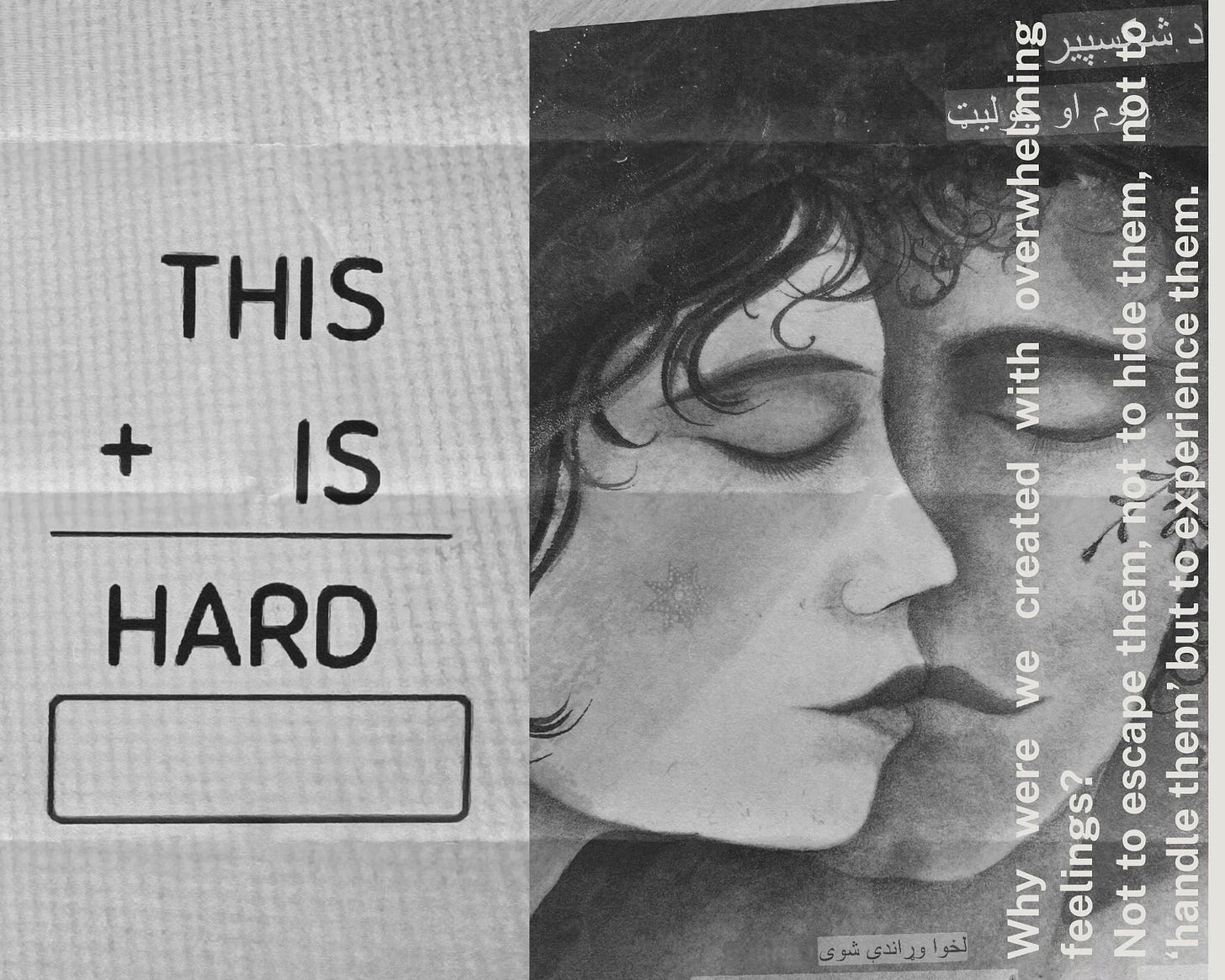THIS IS HARD vs. HEAR HOW
by Anna Atsu
‘If we know how it’s all going to turn out, then why hang out about waiting to see what happens?’
– Michael Rosen
When I was about half of my current age, I discussed with my colleague, a maths teacher, about the sense of asking ‘How are you?’ Already knowing the answer to the conventional question, is there any point in asking? I argued then for rephra…



